Here are some pictures of skin cancer to help you with your self-examination
The purpose of you conducting a skin cancer self-examination is to look for any cancerous or pre-cancerous conditions that may exist. By looking at the pictures of skin cancer, you can self determine if you should have cause for alarm. If you feel a cause for any alarm, or are uncertain about your condition, we highly recommend a visit to Arsenault Dermatology, so that a qualified provider can properly diagnose your condition.
Pictures of melanoma skin cancer
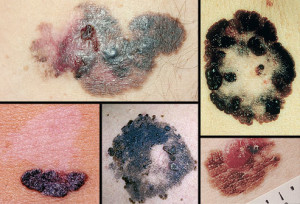
Melanoma is the least common form of skin cancer, but it is also the most deadly, having the potential to grow and ultimately spread throughout the body. Each year, over 75,000 people are officially diagnosed with melanoma. Almost 10,000 people die each year from this silent killer, according to statistics from the American Cancer Society (ACS). Unfortunately rates of melanoma are increasing—it is becoming more common among children and teens. This is why we recommend cancer examinations on patients of all ages, including infants and adolescents.
A melanoma does not fit into any specific criteria — it is often characterized by its’ irregular sizes, unconstrained shapes, varied colors and/or patterns. You must watch these types of moles closely, as they can easily change and quickly become melanoma.
It is important that you look often for any slight changes in your moles, such as growth in size or change of color and/or shape. Some moles may evolve and develop new symptoms, such as actual bleeding and/or itchiness. This is why a skin cancer screening conducted by a board certified dermatologist is your best choice.
Here’s what dysplastic moles look like:
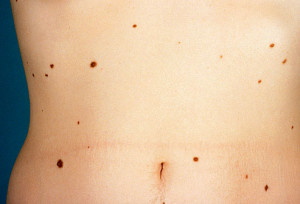
Here’s what basal cell carcinoma looks like:
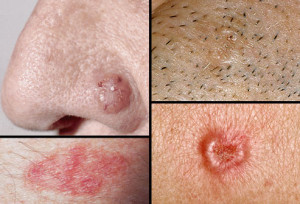
Here’s what squamous cell carcinoma looks like:
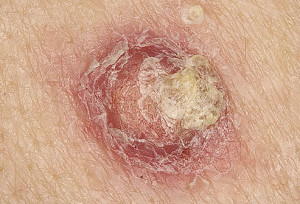
Here’s what actinic keratosis (solar keratosis) looks like:
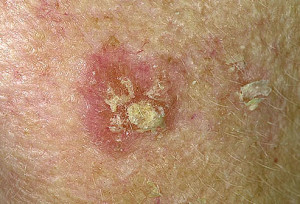
We provide skin cancer treatment in Sarasota and Bradenton
Arsenault Dermatology provides skin cancer treatment at both of our Southwest Florida locations. Our Board Certified Dermatologist or Licensed Physician Assistants will examine your skin and detect suspicious rashes, bumps, lesions, moles, or other skin abnormalities. It is important that your skin cancer is detected early, which can drastically improves your prognosis and chances for successful treatment.
To schedule an appointment, call 941-907-0222 or click REQUEST AN APPOINTMENT.







